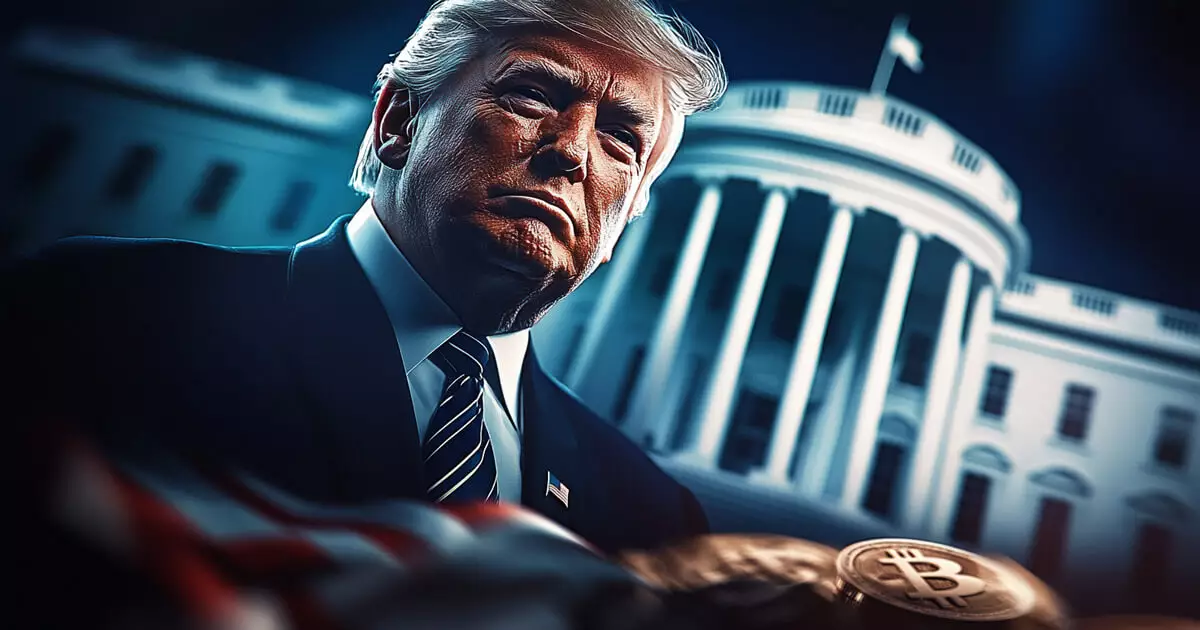In a recent memo circulated by Bitwise Chief Investment Officer Matthew Hougan, significant insights were shared following the surprising electoral victory of Donald Trump. With predictions on various platforms indicating a high likelihood of Trump winning the U.S. presidential election, the cryptocurrency market experienced a notable surge. Bitcoin, often viewed as the bellwether of the crypto space, reached a striking all-time high of approximately $75,650, signaling a potential new chapter in the crypto landscape. In this environment, Bitcoin’s trading price has hovered around $75,300, reflecting a 7.69% increase within a single day, as reported by CryptoSlate.
This momentum, however, has not been uniformly experienced across the cryptocurrency spectrum. Hougan’s remarks regarding the need for investors to exercise caution and selectivity highlight the uneven recovery and performance among various digital assets. Although the market appears to be bolstered by optimism over Trump’s administration, it’s crucial for investors to differentiate between fundamentally sound projects and those lacking in merit.
One of the most critical transformations anticipated with a pro-crypto administration is a revised approach by regulatory agencies, particularly the U.S. Securities and Exchange Commission (SEC). For years, the SEC has operated under a ‘regulation by enforcement’ model, which has included numerous legal actions against crypto firms accused of distributing unregistered securities without clear guidance on applicable regulations. This adversarial stance has often hampered the industry’s growth, a point emphasized not only by Hougan but also by SEC Commissioner Hester Peirce, who has criticized the agency’s historical approach as disastrous.
Under a Trump administration, there is a hopeful expectation that this regulatory climate will shift towards a more supportive framework. The anticipated changes might include new leadership at the SEC, which could pave the way for a more transparent and conducive environment for innovation in the crypto sector. Such changes, paired with an end to aggressive oversight like Operation Choke Point 2.0, paint a promising picture for the future of cryptocurrency.
Moreover, the outlook suggests a possible influx of institutional investment in the cryptocurrency sector. Hougan posits that if the regulatory landscape becomes more favorable, the floodgates could open for institutional players who have previously remained on the sidelines. This potential shift is underscored by the already robust institutional demand for Bitcoin, evidenced by over $23 billion in inflows into Bitcoin exchange-traded funds (ETFs) and increasing interest from hedge funds and leading financial institutions. Additionally, events like the April 2024 Bitcoin halving and the emergence of real-world applications, such as stablecoins and innovative platforms, further bolster this promising investment climate.
The broader economic backdrop, characterized by rising U.S. debt and possible interest rate reductions, could also enhance Bitcoin’s narrative as a critical portfolio asset. While the macroeconomic trends provide a fertile ground for crypto, it’s essential to ground one’s expectations in realism; new governmental support does not guarantee automatic success for all projects.
Optimism about a future enriched by favorable regulations needs to be tempered with prudence. Hougan’s caution about treating all cryptocurrencies as equally viable investments serves as a reminder that not all projects will adapt and thrive in a newly supportive environment. As the industry matures, many projects may fall short of expectations, highlighting the necessity for investors to maintain a discerning perspective in their investment decisions.
Hougan articulates the importance of establishing a disciplined approach, advocating that investors must critically evaluate which projects demonstrate the potential for sustainable success. This newly established regulatory balance might provide an equitable arena where successful projects can rise based on their merits rather than on extraneous conditions.
While the dawn of a pro-crypto administration can herald tremendous opportunities for the cryptocurrency market, investors should approach this evolving landscape with both optimism and caution. For those who financially backed cryptocurrencies during uncertain times, the future appears brighter than ever, but navigating it requires careful consideration and strategic investment choices.



















